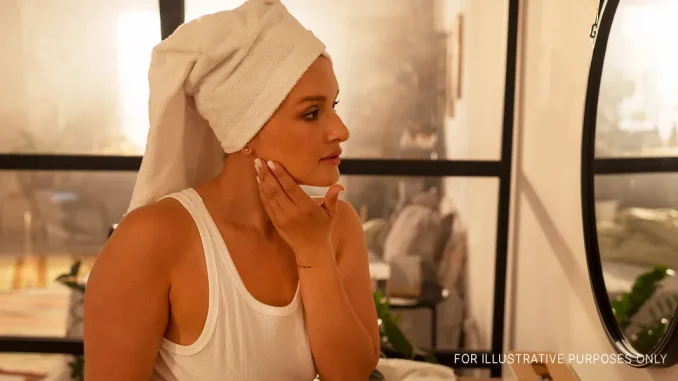
Eloise’s words landed with the weight of an epiphany. The confusion and self-doubt I had been battling for months suddenly made sense. “It’s not you, it’s them?” I repeated, trying to digest what she was saying.
She nodded, her eyes filled with a mixture of empathy and frustration. “Yeah, it’s about their standards, their control. Jacob, he grew up in an environment where appearances were everything. My mother, especially, has a certain idea of what’s acceptable, and it’s… rigid.”
I felt a sudden wave of relief, like a veil had been lifted from my eyes. I wasn’t the problem. The issue wasn’t my hygiene or any supposed flaw in me—it was about the toxic dynamics within Jacob’s family that had shaped his perception of cleanliness, of control, and of relationships.
As I listened to Eloise, her words revealed a painful truth: Jacob’s fixation on my hygiene wasn’t rooted in love or care—it was a reflection of his upbringing. His need for perfection, reinforced by his mother’s rigid standards, was playing out in ways that left me feeling alienated and small.
Eloise continued, “Jacob’s been raised to believe that cleanliness isn’t just about health—it’s a sign of moral value. So when he asked you to shower more, it wasn’t about concern for your well-being, it was about his need for control, his way of seeing you as ‘perfect’ in his eyes.”
I sat there, absorbing the weight of her words, my mind racing. All this time, I had blamed myself, altered my routine, and questioned my worth. But the real issue wasn’t me at all. It was the manipulation that had been ingrained in Jacob’s worldview, something that had been passed down from his mother and shaped his sense of self.
Eloise gave me a small, knowing smile. “I think it’s time for you to stop doubting yourself, Sophie. Don’t let their issues define you.”
Her words were a balm to my wounded spirit. I realized then that the path forward was clear. It wasn’t about appeasing Jacob’s demands or proving my worth to his family. It was about reclaiming my sense of self, my autonomy, and my right to set boundaries. I had been so focused on meeting their expectations that I had lost sight of who I was.
That night, as I rejoined Jacob and his family at the dinner table, I felt a sense of clarity I hadn’t had before. I no longer felt the need to conform to their vision of me. I was done trying to fit into a mold that wasn’t mine.
When Jacob turned to me with his usual expression of expectation, waiting for me to respond to his unspoken criticisms, I looked him in the eye and said firmly, “Jacob, I’ve realized that I can’t live up to the impossible standards of your family. I’m not going to change who I am to meet expectations that don’t align with my values.”
His expression faltered, and for the first time, I didn’t feel the weight of his judgment. I wasn’t afraid to stand up for myself. I wasn’t afraid to walk away if it meant preserving my self-respect.
The evening ended without any major confrontation, but the seeds of change had been planted. In the days that followed, I began to see Jacob in a new light. His mother’s influence was far more insidious than I had realized, and I wondered how much of our relationship had been shaped by her views rather than our mutual connection.
As for me, I walked away from that dinner with a newfound strength. I wasn’t the woman who needed to shower twice a day to be worthy. I was Sophie, a woman who had the right to define her own worth, and to demand respect from anyone who wanted to share her life.
And though the journey ahead would undoubtedly have its challenges, I knew one thing for sure: I would never again let anyone dictate my value based on their narrow expectations. The road to self-discovery had been painful, but it had also been liberating. I was ready to embrace the real me, flaws and all.
Leave a Reply